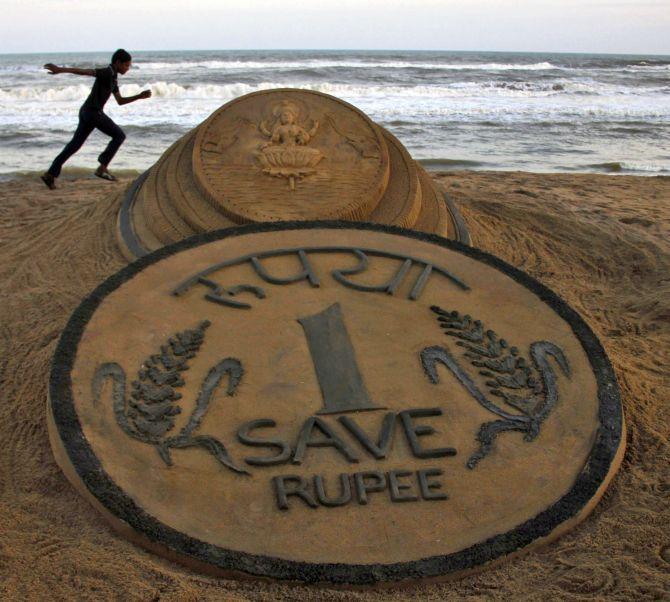
By rolling over some costs, Chidambaram can tell voters in the run up to the elections, which must be held by May, that the government met its deficit target, notes Rajesh Kumar Singh
Finance Minister P Chidambaram is finding it harder and harder to meet the government's budget promises and may sweep as much as $15 billion in subsidy costs into next year's accounts to ensure he hits fiscal targets ahead of national elections, ministry officials say.
Chidambaram insists that the fiscal deficit target of 4.8 per cent of gross domestic product for the year to March 31, 2014, is a red line that will not be breached.
The worst economic downturn since 1991 and a fall in the rupee to a record low have undermined budget assumptions for some months.
But finance ministry officials said the window to raise domestic fuel prices sharply, which would cut subsidies, is closing with state and national elections drawing closer, so shifting some costs into the 2014/15 budget is inevitable.
"It's a given," said one official, who declined to be identified.
. . .
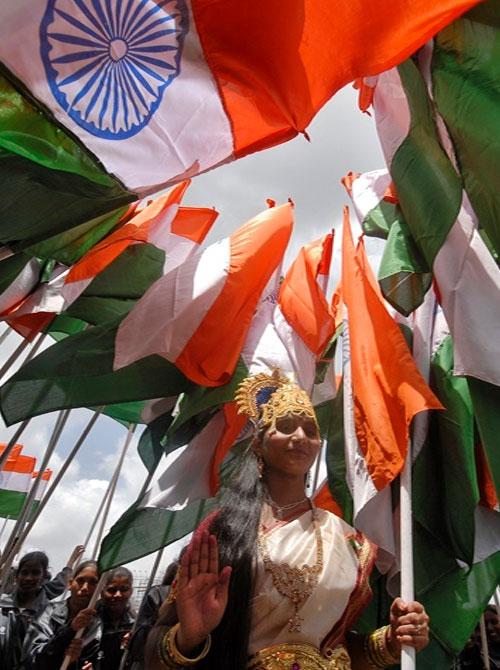
The worst-case scenario as of now is that $15 billion in costs will have to be rolled over into next year's budget, the ministry officials said.
This assumes that there will be no substantial increase in domestic fuel prices to offset the ballooning subsidies.
By rolling over some costs, Chidambaram can tell voters in the run up to the elections, which must be held by May, that the government met its deficit target.
But equally, he will be shackling the next government with costs that could blunt its ability to stimulate an economic recovery.
"Whatever we need to do, we will do. But the fiscal deficit target will be met," said a finance ministry official. "No one should be in doubt about that."
Meeting the target is important also to stave off the ire of ratings agencies as India's credit status sits just one notch above junk.
. . .
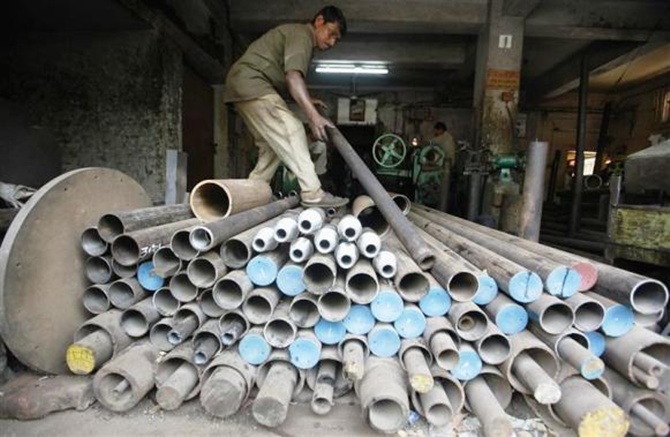
A loss of its investment grade rating would probably increase the government's borrowing costs.
Last year, Chidambaram narrowed the budget deficit by 1 percentage point to 4.9 per cent of GDP by pushing nearly $15 billion in subsidy costs into this year's budget and cutting more than $16 billion in planned spending, two ministry officials said.
This year, he could rollover a similar amount in subsidies, the officials said.
This will be in addition to spending cuts of $3.2 billion or more that officials are already predicting for the year.
The amount will be partly determined by the success of an auction of telecom spectrum, expected in January.
The budget had pencilled in $2 billion for the sale.
. . .
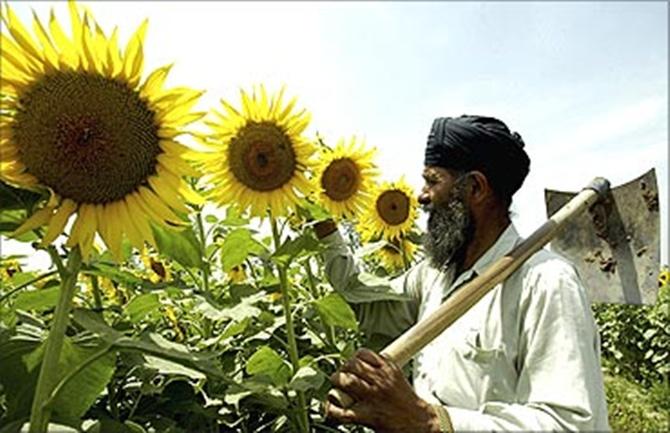
But the most critical factor will be whether Chidambaram can gather government support to raise domestic fuel prices to offset ballooning subsidy costs.
Some policymakers see that as politically unpalatable ahead of state elections in December, leaving a small window after those votes before the country moves into national elections.
A finance ministry spokesman, D S Malik, said it was "too early to say anything at this stage" on how much the rollover would be.
Chidambaram had planned to cap the subsidies for the likes of fuel and food at 2 per cent of GDP, or about $38 billion.
But finance ministry officials said it could cost as much as 2.9 per cent of GDP, or $55 billion, this fiscal year.
Chidambaram had said earlier this month that the jump in subsidy spending must be tackled sooner rather than later to help stabilise an economy shaken this year by the rupee's slump and a record current account deficit.
India imports nearly 80 per cent of its oil needs and the rupee drop made government fuel subsidies more costly.
. . .
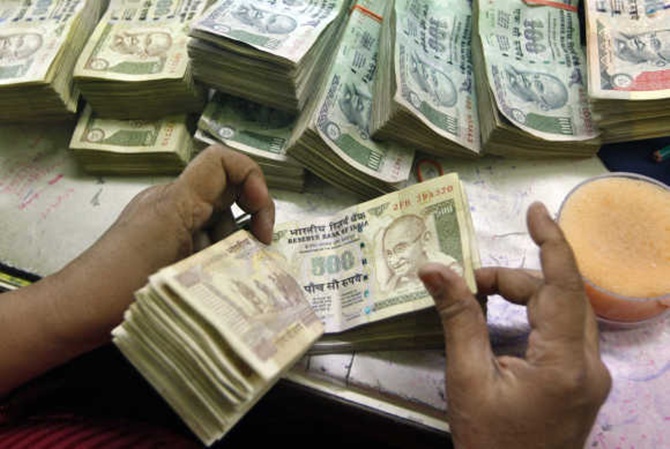
Soaring subsidy bill
Finance ministry officials in September called for an increase in diesel prices of close to 10 per cent to offset the pressure on the subsidy bill.
But Prime Minister Manmohan Singh has shied away from raising fuel prices for fear it could upset voters and cost his Congress party the elections.
At the same time, international oil prices have remained stubbornly high and although the rupee has climbed up from its record low, it remains historically weak.
A new law to provide cheap grains to millions of people has increased procurement and storage costs, inflating food subsidies by around 10 per cent.
Adding to Chidambaram's headache, the fertiliser ministry has asked for a 50 per cent hike in its budgeted subsidy.
"The budget will simply collapse, if we continue to provide subsidies on this scale," said a finance ministry official.
"There is no alternative to a 3-5 rupees increase in diesel prices."
. . .
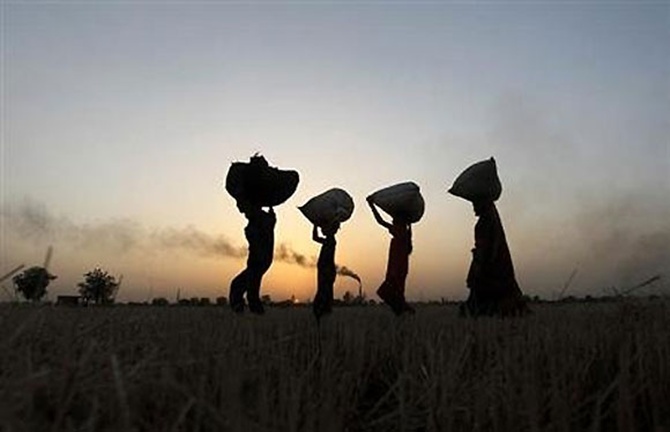
Assumptions
It is not unusual for the government to rollover some costs into the following year's budget, although they are not publicly revealed.
However, subsidy spending has massively overshot budgeted estimates for the last three fiscal years forcing up the amount of cost that the government rolls over.
If the economy was booming, Chidambaram would have easily absorbed higher subsidy costs.
But GDP rose 5 percent in 2012/13, the weakest pace in a decade.
Most analysts expect growth to weaken further this fiscal year, although the budget assumed a rebound to around 6.5 per cent.
Ministry officials say the rollover is the result of India's cash-basis accounting, in which income is recorded when cash is received and expenses are recorded when cash is paid out.
Many advanced economies follow accrual accounting, in which income and expenses are recorded as they occur regardless of whether cash has actually changed hands.
India's accounting method "never gives you the real picture of your finances," said Devendra Kumar Pant, chief economist at India Ratings & Research.
"You start the year on the back foot as you have so much backlog to clear."